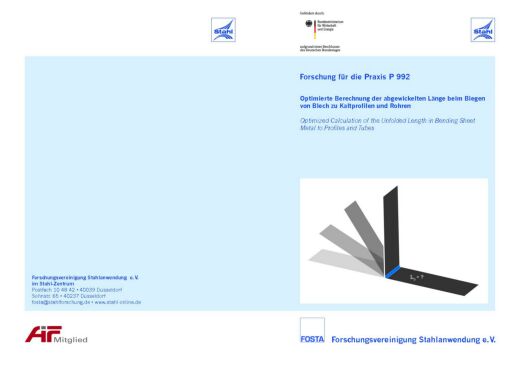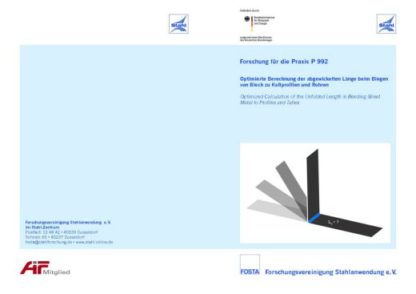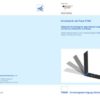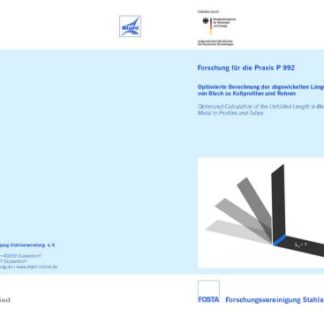Description
P 992 – Optimized calculation of the unfolded length in bending sheet metal to profiles and tubes
State of the art methods for calculating the unfolded length in bending produce different results for the same task. Material properties as well as influences of different bending processes (die bending, folding, rollforming) are generally neglected by state of the art calculation methods. Process design therefore relies on experience to avoid trial and error loops.
The project starts off with an analysis of the basic assumptions of the state of the art calculation methods showing the need for an improved calculation method. This project aims at improving existing calculation methods by conducting experimental and numerical investigation of different bending processes. As a prerequisite for experimental investigations on the shift of the unlengthened fiber in bending, an experimental approach to detect this shift needs to be designed. Using this experimental method enables the determination of the unlengthened fiber in die bending, folding, and roll-forming processes. Furthermore, numerical studies of different bending processes are employed to define suitable design parameters for numerical simulations of bending experiments. Combining experimental and numerical results indicates the main factorof influence on the position of the unlengthened fiber. Finally, interpolating the test results provides the opportunity to create an improved calculation method for determining the unfolded length.
First results indicate that bending ratio ri/s0 and bending method are the main factors of influence on the position of the unlengthened fiber and thus the unfolded length. In contrast, bending angle and material properties only have minor effects on the position of the unlenghtened fiber.
The results of this project will improve the design process of sheet metal bending components by providing an optimized method for calculating the unfolded length. This ability to reliably determine the unfolded length at production start prevents time-consuming and expensive correction loops.
The research project (IGF-Nr. 16586 N) was carried out at Institut für Produktionstechnik und Umformmaschinen der TU Darmstadt. FOSTA has accompanied the research project work and has organized the project funding from the Federal Ministry of Economics and Technology through the AiF as part of the programme or promoting industrial cooperation research (IGF) in accordance with a resolution of the German parliament.
Only available in german language.
Authors:
P. Groche, T. Traub
Published in:
2015




